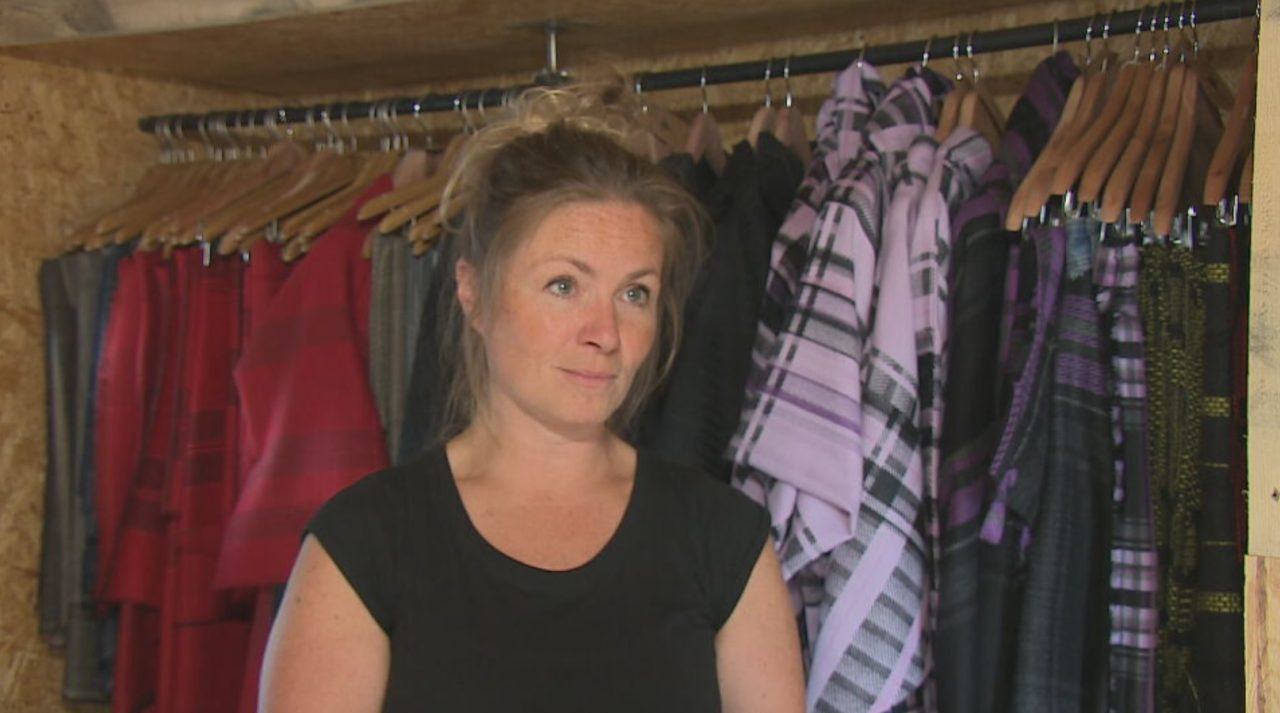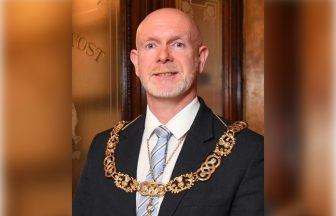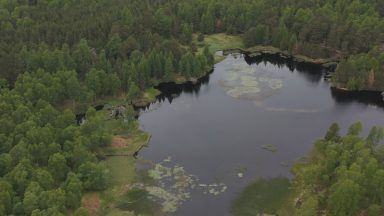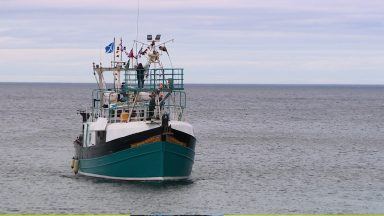Scottish businesses and makers are encouraging shoppers to join fight against “damaging” fast fashion by making positive changes.
Fashion moves so fast that new trends are hitting the shops constantly at bargain prices – but our throwaway clothing culture comes at a high price to the planet.
The industry produces up to 10% of the world’s annual global carbon emissions – more than the aviation and shipping industry combined.
Scotland’s most environmentally damaging waste is textiles and shoes, according to Zero Waste’s latest carbon metric report.
In Dundee, a community wardrobe is trying to raise awareness of the impact by running repair workshops and providing second-hand clothes.
Joyce Reid of the Wardrobe said: “Every time you throw something away, you are throwing away all the emissions which went into making that.
“The fashion industry has a long stage of process and at every stage there are more and more emissions coming from that.
“It starts at the very beginning. Growing the cotton the fabric is very intensive, using a lot of pesticides. It takes thousands of gallons of water to make one t shirt or pair of jeans.

“We know fast fashion is made in developing countries where regulations are not as strict as they should be.
“So waste water goes straight into rivers, corners are cut and cheap nasty dyes are used with all the toxics going straight into river.”
But it’s not just our planet which is suffering; fast fashion relies on cheap labour.
In countries like Bangladesh, garment workers continue to be exploited.
A factory collapse which killed over 1,000 people ten years ago prompted promises of labour law reform.
Professor Muhammad Azizul Islam from Aberdeen University has spent almost 20 years looking into the lives of workers in the fashion factories near where he grew up.
He said garment workers are still not being paid enough to live on.
He said: “They often have to make unreasonable production targets. They are subject to verbal abuse, sometimes they are subject to sexual abuse, they are exploited and under paid.”
Scotland might only be a small part of the global fashion industry, but brands are increasingly proving they can play their part in creating positive change.
Sustainability is the thread which runs through the heart of an ethical tartan weaving mill in the Highlands.
Prickly Thistle was set up by designer Clare Campbell.

Through zero waste design, natural fabrics and made-to-measure sizing, Prickly Thistle creates clothing with the goal of lasting longer.
The company encourages people to buy new clothing no more than four times a year.
Clare said: “Everything is natural fibres. We don’t waste a single thing.
“We have changed the current rules when it comes to clothing. Everything we make is designed to be reimagined into something else.
“What you wear says so much about you and there is nothing more liberating that saying ‘I’m wearing clothes that no other person has been enslaved for, no one has been harmed in the making of it and no one is going to be harmed when my garments are eventually beyond repair and just go back into the soil to soil system.”
Clare admitted it is “challenging” as a business owner, though she added: “At the end of the day, what will be a testament to businesses like ours is that we never compromise on our values.
“I hope that clearly lays out to people that when you buy from a company like us, you do make a difference.”
Most of us have wardrobes jam packed with clothes which we rarely wear – so what are some more sustainable solutions which won’t cost the earth?
Well Ros Stud and Ellie Alavi say if it’s torn, mend it.
The Aberdeen pair post free online tutorials to teach people to repair their own clothing.
They say Repair What You Wear is their own personal response to austerity and climate change and a recognition that small things can make a difference to individuals and society.

Former retail buyer Ros says clothes mending can save money and reduce landfill.
Their initiative has helped hundreds of thousands of people across the world keep their clothes in better condition thanks to their teaching videos in YouTube.
“If we keep increasing the volume of clothing we consume and we wear it for shorter lengths of time, we’re increasing our carbon footprint.
“Once something is made, the damage is done. So if you only wear it once that’s very damaging.
“It’s also extremely important that we slow down our clothing consumption so we set up a core resource that’s hopefully accessible to everyone, so it’s no longer a privilege to know these things.”
Over 60% of our clothing is made of a form of plastic which doesn’t biodegrade – and usually ends up in landfill.
Zero waste designers say the Government should be doing more to help us make more ethical purchase decisions .

Clare added: “Tell all the businesses to clean up their mess but at the same time help consumers navigate what is a really good business that is actually doing its best but is brave enough to be transparent about what it does and what it is working on.
“No business exists without a customer, so how does a customer know they are making the right choice? You are seeing so much green-washing.
The lure of fast fashion can be difficult to resist, but we can all make small changes towards a more sustainable future.
Ros says we should all be encouraged to only buy what we really need and what we really like and look at pre-loved first because she says there should be “no shame in looking at second hand clothes”.
She also advises wearing our clothes for a long time.
“Doubling the amount of time you wear it, halves the carbon emissions,” she added .
Follow STV News on WhatsApp
Scan the QR code on your mobile device for all the latest news from around the country
























